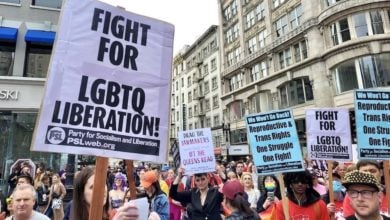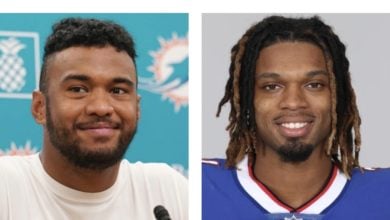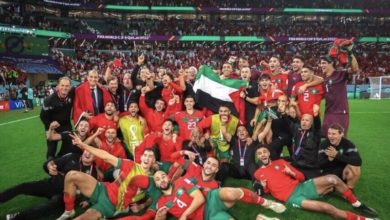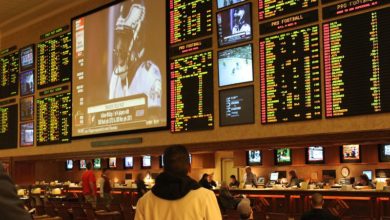Every autumn, the National Football League commands the attention of millions of people. But, this year, conversation has gone beyond individual teams’ successes or failures; a conflict has erupted on whether the storied Washington franchise should finally change its racist name, the “Redskins.” (Several newspapers, including the San Francisco Chronicle, have decided to stop printing this derogatory term, and Liberation will hereafter refrain from using it as well.)
A coalition of Native American activists, prominent clergymen, media personalities and local organizers has formed to demand the name be changed. While the national media has followed the controversy, the struggle against racism is also being waged on the ground in Washington, D.C. itself.
On the streets, Change the Name Now!, a campaign of the ANSWER Coalition (Act Now to Stop War and End Racism), is gathering petitions to build grassroots support for the name change from within the team’s home market. The campaign is distributing literature to teach fans about the team’s racist history and why changing the name is important to defeating racism in sports, and society as a whole.
Apologists for the name appeal to tradition and sentimentality. They claim that the movement for change is primarily media-driven, of concern primarily to middle-class liberals not Native communities themselves. They use the term “political correctness” to disparage the desire for change.
But this movement has been waged for decades by Native organizers, and is in fact just one front in the 500-year-old struggle by Native Americans for freedom and respect.
Legal challenge
The issue entered into national news with renewed momentum when Suzan Shown Harjo, a Cheyenne and Hodulgee Muscogee activist and former executive director of the National Congress of American Indians, along with a group of co-plaintiffs, sued the football team before the U.S. Patent Office’s Trademark Trial and Appeal Board. They charged that the Washington name was disparaging to Native Americans and therefore, legally, could not be a protected trademark.
The Board agreed with Harjo and moved to void several of Washington’s trademarks, but a court appeal overturned the ruling based on a legal technicality and the U.S. Supreme Court refused to hear the case. This is the same Supreme Court that generally sides with racism, this year voiding key aspects of the Voting Rights Act.
Harjo, seeing where the case was headed, recruited a new group of plaintiffs led by Amanda Blackhorse, to resume the legal fight. Their case is still pending before the Trademark Trial and Appeal Board, but precedent suggests that it may succeed in voiding some of Washington’s trademarks. This could put significant financial pressure on the franchise to change the name.
A movement in the media
A number of prominent media personalities and outlets have stated their opposition to the name and refused to use it. Some had been doing so unofficially for years, but the new momentum prompted others, including writers for Washington-area newspapers, to join in.
Washington team owner Daniel Snyder infamously responded to the USA Today, “We’ll never change the name. NEVER. You can use caps.” In messages to fans and the press, he appealed to “pride” and “honor” and “tradition,” citing the many high schools, including some Native schools, that use the name for their teams.
High-school students, however, have proven to be far more progressive than Snyder. Over the summer, students at Cooperstown High School in New York, whose team name was the same as that of Washington, elected to change it. The story did not make a national splash, but it got the attention of some people in the area—the Oneida Indian Nation.
Armed with a website and well-connected social media, the Oneida Nation’s Change the Mascot organization, launched their campaign at the start of the NFL season. They created radio ads denouncing the racism at the heart of the Washington team name and appealed to Snyder and the NFL to make a change. The ads regularly air in the D.C. market and in every other city the team visits for road games.
A movement in the streets
In addition to the online and advertising efforts of Change the Mascot, which has commanded significant media attention since its inception, many people are taking to the streets.
In Wisconsin, Oneidas residing in the state led a protest when the Washington D.C. team visited Green Bay, connecting the nation’s financial support of the Green Bay Packers and Lambeau Field to their demand that Washington not be allowed to play there. A similar action was held in Dallas the same day in which famed sports broadcaster Bob Costas delivered his halftime address against the racist name.
In Minnesota, the American Indian Movement has called for protests around the team’s upcoming visit and has demanded that the publicly-funded future stadium of the Minnesota Vikings ban admission to Washington if they do not change their name, based on state and federal laws against disparagement.
In Washington itself, Change the Name Now! and its allies are raising the issue directly in the team’s home market. While the national campaigns aim to force the NFL to act, local outreach and actions attack the team’s bottom line — profit. Change the Name Now! aims to force the team itself to act in response to the demands of the community and football fans in its own area.
You can learn more about Change the Name Now! and sign the petition at www.changethenamenow.org.





